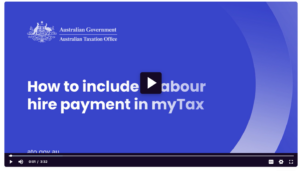As a contractor, you may be up to speed when it comes to skills and industry trends. But how much do you know about finance?
Being aware of your finances is critical when you’re a contractor, but it’s something that we often overlook. Whether you’re just starting out or have been contracting for years, it takes some fiscal planning to prepare for income ebbs and flows.
We wanted to share some insights into what you should be aware of to make the most of your finances while contracting.
1. Enlist a professional
Unless you are just starting out, in-between assignments and have a lot of free time, doing your finances is already costing you money. Every hour spent doing them is an hour you could spend carrying out paid work and most contractors will find that the extra time they get from taking on an accountant more than pays for the cost of doing so. There are also specialist accountants for contractors who have the knowledge and expertise to advise you on how to make the most of your earnings.
2. Think about how you want to operate
A common question from contractors is whether they should be Pty Ltd or PAYG. Whilst there is no right or wrong choice, there are a few points to consider when selecting an option. Many Talent contractors are set up as PAYG. This gives them the benefit of Talent managing all the time-consuming tasks associated with being a Pty Ltd contractor.
Once you have more time available, you may look into becoming a Pty Ltd contractor. In this case, you would contract through your own proprietary limited company. Depending on your circumstances, this can be more tax effective than PAYG, however setting up and operating a Pty Ltd company can be a time-consuming and costly process. It’s important to speak to your accountant or financial adviser to assess whether this is the right set up for you and complies with ATO legislation.
3. Budget, budget, budget
Budgeting is critical as a contractor. It’s important to plan both your spending and savings to be sure you’ve got money to fall back on when needed. Following the rule of putting 10-20% of your take home pay away as savings can help you reach your saving goals if you can manage it. Consider the use of a free budget tracking app like Pocketbook which allows you to manage your money through linking your bank accounts.
4. Make sure you have a Plan B
As a contractor, taking a break can be hard as you don’t have the benefit of annual leave. Putting money away for a rainy day is especially important when work is not guaranteed. Saving for a sick day or when you are in between contracts will ensure you aren’t left high and dry financially.
5. Set up an emergency fund
An emergency fund gives you further peace of mind for when between contracts or in the event of unforeseen circumstances. At a minimum, you should have three months of living expenses in your emergency fund. This means if you need $3,000 a month to cover your basic needs like your mortgage or rent, utilities, and food, then you need $9,000 in your emergency fund. If you have people who depend on you financially, like children or a spouse, your emergency fund should be six months’ worth of living expenses, at a minimum.
6. Prepare for tax time
One of the great benefits of contracting is the possibility of being able to claim additional tax deductions for business related expenses. This can include an array of items which your accountant can advise you on. This could add up to a few thousand dollars a year.
Also, it’s important to be prepared for any expenses that may arise at tax time. So that this doesn’t come as a shock, be sure to factor this in and open a bank account earmarked for tax and save up for your tax bill. Consider having this in an offset account if you have a mortgage so you can save the interest on your loan.
7. Consider salary sacrificing
Salary sacrifice is an arrangement which enables you to pay for certain goods or services straight from your pre-tax salary. The effect is to reduce your taxable income, whilst giving you tax effective access to a variety of goods. This is something you can utilise as a PAYG contractor and is generally permissible for mobile phones, notebooks, tablets and training courses that are related to your line of work. You also are able to contribute additional payments into your super (thereby lowering your income tax rate).
8. Check your credit history
Do you know what your credit rating is? It is a good idea to check your credit score as regularly as you can. If you do have a low score, there are steps you can take to help improve it. Checking your credit score is free and relatively easy to do. You can check your credit score for free using the national credit reporting bodies (CRBs) listed on the government website. This will help in the event that you wish to apply for a loan.
9. Don’t forget your insurance
Regardless of how you have set up your contracting work, it’s important to be aware of your insurance obligations. As PAYG you do not need to pay your own insurances (for example WorkCover, public liability), whereas Pty Ltd contractors are required to cover all of their own insurances. Both types of contractors should consider whether income protection insurance is suitable for their needs.
For more information on this, click here.
The information contained in this article is general in nature and has been provided in good faith, without taking into account your personal circumstances. While all reasonable care has been taken to ensure that the information is accurate and opinions fair and reasonable, no warranties in this regard are provided. Before making any commitment of a legal or financial nature you should seek advice from a qualified and registered legal practitioner or financial or investment adviser.





